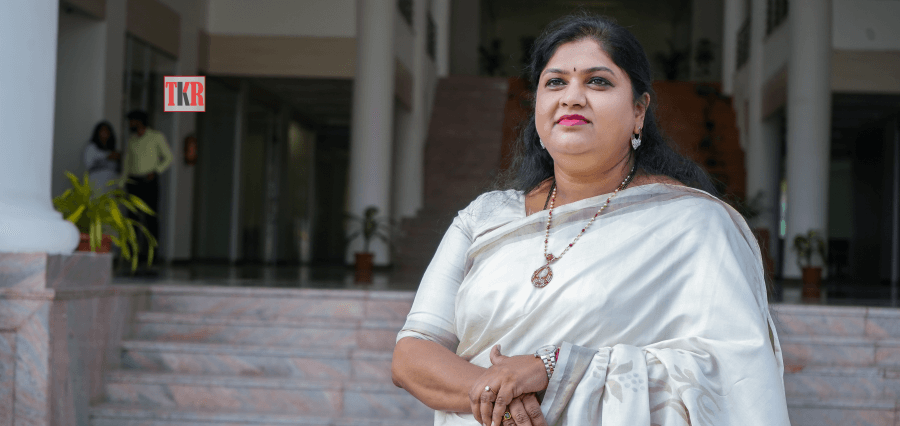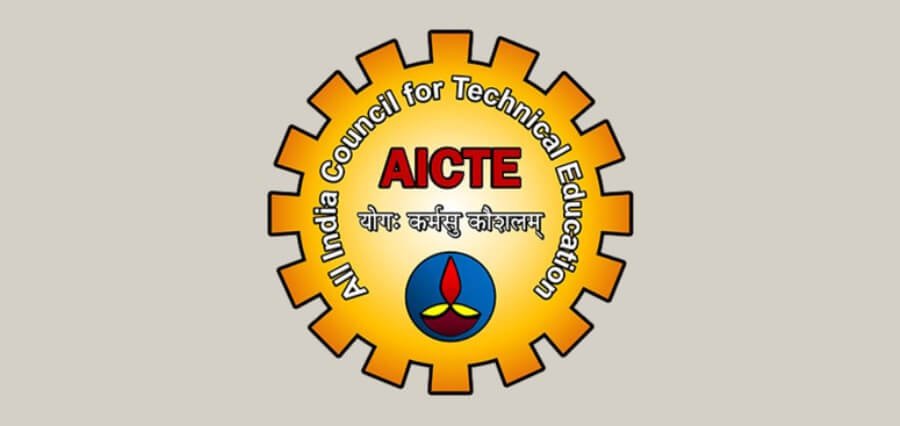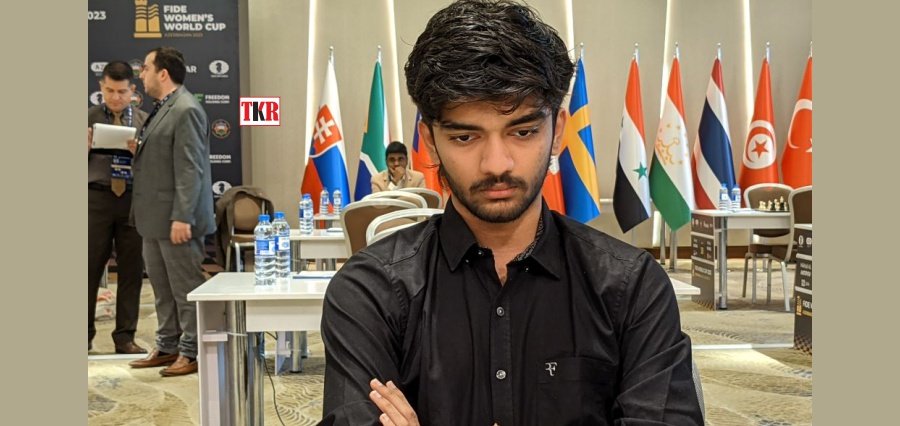A robust education system empowers individuals, strengthens communities, and propels nations toward sustainable development. It promotes equality by offering quality education to all, regardless of socio-economic status, fostering a society where merit, rather than privilege, determines success.
With her noble pursuit of enhancing the educational ecosystem, Prof. Swatee Karad Chate has been instrumental in introducing innovative learning methodologies. She is a determined individual whose deeds speak louder than words. Through her diverse roles as the Trustee, Secretary General, MAEER’s MIT Group of Institutions, Pune, and Executive President of MIT Vishwaprayag University, Solapur, she aims to promote research-based learning.
The beginning of Prof. Swatee’s journey was experienced in a family deeply rooted in Indian spirituality, culture, and society. Born to a family of visionary educators, Prof. Dr. Vishwanath D. Karad and Mrs. Usha Karad, she grew up with a strong sense of passion, conviction, and dedication to the betterment of society. She grew up in the protective embrace of a joint family structure, which helped her acquire empathy and a wide outlook on life.
Pursuit for Nation-building
The modest background of Prof. Swatee, who was born in the Latur region of Maharashtra, served as an inspiration. Her father’s incredible journey, characterized by tenacity and resolve, paved the way for her to meet obstacles head-on with unyielding bravery.
Prof. Swatee has always been motivated to contribute positively to the education sector by her strong belief that education is essential to the development of a nation. According to her, education is the cornerstone of common lives and, by extension, the cornerstone of a robust community and country as a whole.
Prof. Swatee reminiscences on how from the beginning, materialistic advancement was necessary for a decent life for all human beings. She states, “The 21st century is much better in terms of human development across the globe. Most of the countries are in a developing or developed stage compared to earlier centuries. The fundamental necessities like food and shelter are being addressed, and basic education has also expanded its reach, although it still has a long way to go. However, during the process of development in the decades gone by, the importance of human values such as ethics and empathy was lost. This has resulted in environmental damage, unrest, and mental health issues. Therefore, education needs to evolve to address these concerns.”
Tackling Adversities with Sensitivity
Prof. Swatee strongly believes that a student’s strength of character is something they can carry with them throughout their lives. The goal of educational institutions is to enhance their sensitivity and provide them with the tools they need to handle the problems the world faces. MIT aims to provide a value-centered, all-encompassing education that develops self-awareness, empathy, and sensitivity. Students will eventually benefit from this as they grow psychologically, physically, spiritually, and academically.
The MIT Group of Institutes is prioritizing the revival of the traditional Indian Knowledge System and incorporating it into all of their extracurricular and academic endeavours in order to realize this objective.
Keeping the Indian Culture Intact
Since 2017, the MIT Group of Institutions, Pune, through MAEER’s Institute for Indic Knowledge Studies (IIKS), has led the way in Applied Indic Knowledge Studies. The curriculum and programs of MIT IIKS are meant to provide modern students with sufficient fundamental knowledge and to acquaint them with the methodology and applications of Vedic sciences. Their plan is to provide courses according to the Vedic stream categorization and provide alternative ways to combine them in order to accommodate diverse modern educational streams. The curriculum at MIT IIKS places a strong emphasis on the essential knowledge and abilities found in the modern, mainstream university education system, which incorporates well-known ideals based by an Indian viewpoint.
Prof. Swatee finds a strong resonance in the teachings of Swami Vivekananda. His words, “Take up one idea. Make that one idea your life; dream of it; think of it; live on that idea. Let the brain, the body, muscles, nerves, and every part of your body be full of that idea, and just leave every other idea alone. This is the way to success,” which exhorts people to devote their entire being to a single concept and acts as a compass for her career.
Fostering Holistic Development of Young Minds
Prof. Swatee became increasingly convinced as a result that obstacles are opportunities rather than roadblocks in any line of employment. This method, which she also saw in her father, enabled her to advance in her career despite all of the obstacles she faced.
The MIT community is inspired from Swami Vivekananda’s teachings and through his life story, which speaks to the universal young. MITVGS, or Vishwashanti Gurukul School, is a network of junior colleges and schools that fosters the holistic development of young minds.
Swami Vivekananda once said, “The union of science and spirituality alone will bring harmony and peace to mankind.” This statement inspired the name “Vishwashanti Gurukul.”
Prioritizing Value-based Education
With the noble goal of offering value based education with global opportunities for academic growth and development, as well as ensuring that all students have the life skills and competencies needed to contribute to a dynamic society while upholding Indian culture, Vishwashanti Gurukul Schools were founded.
VGS aims to strengthen its pupils from an early age so they are physically fit, cognitively sharp, and spiritually exalted. These educational institutions offer a first-rate atmosphere for both character development and instruction, assisting students in acquiring values such as self-control, tolerance for different cultures, collaboration, and harmony that will enable them to forge closer ties with their community and country.
Prof. Swatee emphasizes that while technology empowers today’s youth, it is educator’s duty to instill patience and endurance.
She believes it is her duty to provide positive role models for today’s vibrant youth.
Under her direction, MITVPU is dedicated to this cause and sees a time when India’s youth will lead the globe in the direction of harmony and peace.
Adapting to the Changing Demands
MIT Vishwaprayag University in Solapur is a shining example of a technology-driven, interdisciplinary school that adapts to the changing demands of the future. MITVPU’s slogan is to effortlessly prepare the future generation for sustainable living by the integration of scientific, artistic, and ethical components into education across disciplines, using a holistic approach.
Covering Diverse Arrays of Education
A wide variety of courses are available at MITVPU, such as B.Des, B.Tech CSE, BBA, MBA, BCA, and MCA. The curriculum of these courses is intended to convey scientific understanding, aesthetic sensitivities, and ethical viewpoints.
It entered the unique sector of rail and transportation because of the MIT Group of Institutes’ history in the field of revolutionary education. The Maharashtra government’s DTE has authorized MIT College of Railway Engineering & Research (MITCORER), which is connected to Solapur University.
The need for specialized railway engineers has grown as the railway sector experiences a technological rebirth. A contemporary, effective, and future-ready railway network depends on the smooth integration of this cutting-edge technology into the current infrastructure, which can only be achieved by specialized experts. The goal of MITCORER is to develop and prepare the next generation of students who will be able to tackle the biggest technical and societal problems of the twenty-first century.
The goal of MITCORER is to develop future leaders capable of overseeing and steering significant enterprises in the rapidly changing business environment.
Building a Sustainable Future for the Society
According to Prof. Swatee, education should address the needs of the community in addition to learning historical events and textbook material.
To further the cause of sustainable living, she intends to draw the greatest talent available from across the world. To do this, the MIT network of institutes is forming alliances with national and international academic institutions, businesses, people, and governmental and social groups.
Prof. Swatee wants her graduates to be able to improve and sustain society in some way. The MIT network of Institutes encourages its students to explore their innate gifts and forge their own pathways, all the while developing their intellectual, artistic, moral, and spiritual capacities.
Prof. Swatee Karad Chate’s work consistently demonstrates her dedication to building a sustainable future for society. She feels that students have an obligation to protect the environment as future generations. Consequently, it is crucial to have a progressive attitude that encourages cooperation and thinks globally while acting locally.





